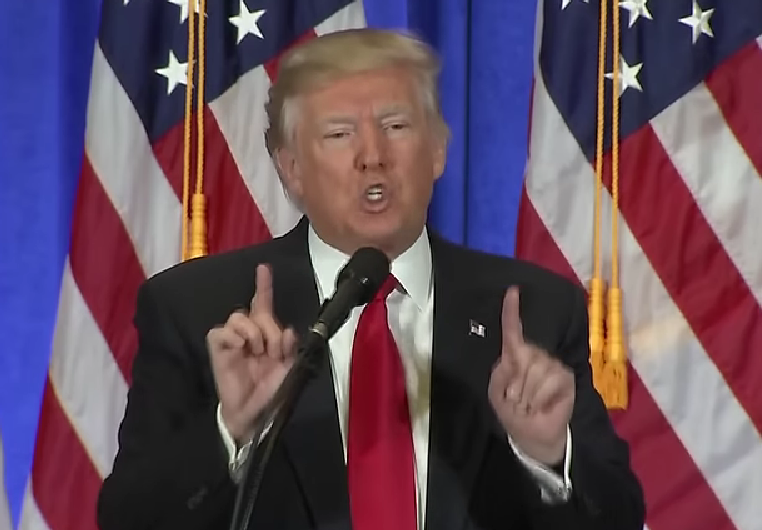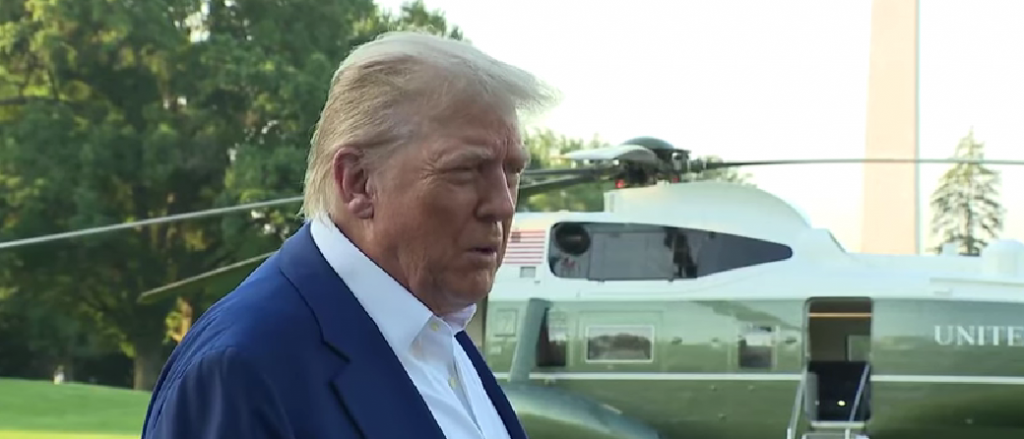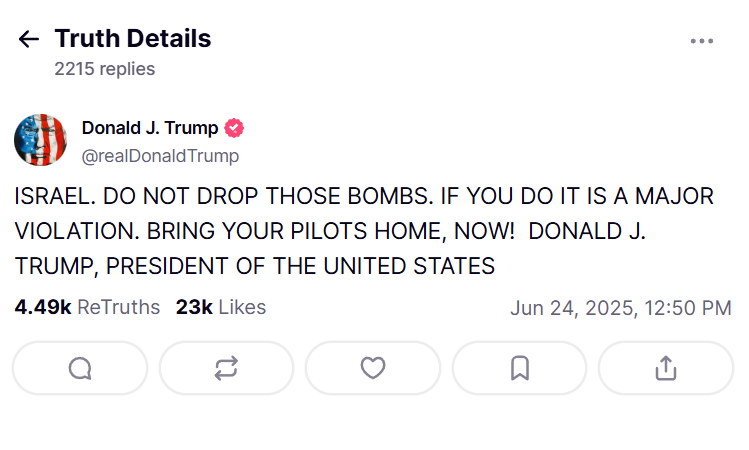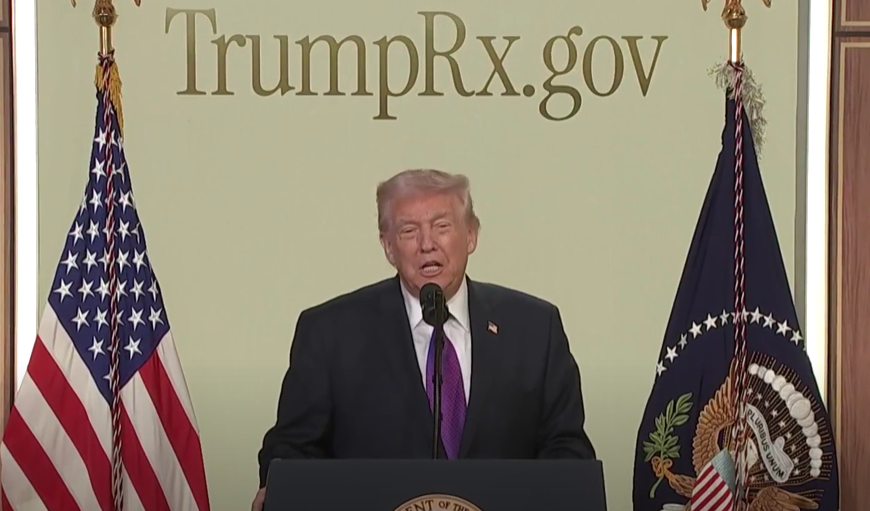Trump Sends Urgent Warning to Israel: “DO NOT DROP THOSE BOMBS”

Who is primarily responsible for the Israel-Iran ceasefire violations, according to Trump?
The Middle East is on edge again. Just hours after a ceasefire was announced, reports of missile strikes and military actions have sparked new fears.
US President Donald Trump has stepped in, issuing a stern warning to Israel after claims that Iran violated the peace deal.
What happened to the hope for peace, and why are both sides pointing fingers? Let’s break it down.
Israel-Iran Ceasefire Violations

On June 23, 2025, President Trump announced a ceasefire between Israel and Iran, calling it a “complete and total” end to a 12-day conflict.
The deal, brokered with help from Qatar, aimed to stop missile strikes and airstrikes that had killed dozens and raised global concerns about a wider war.
Trump shared his optimism on Truth Social, saying both nations wanted peace and that the world would benefit. But by Tuesday morning, June 24, the ceasefire was in trouble.
Iranian state media claimed they had “imposed” a ceasefire after launching missiles at a US base in Qatar, a response to earlier US and Israeli strikes on Iranian nuclear sites.
Meanwhile, Israel reported detecting Iranian missiles aimed at its territory after the ceasefire deadline. The Israeli military said it intercepted some of these missiles, but one hit a residential building in Beersheba, killing four people.
Israel’s Defense Minister, Israel Katz, ordered “forceful” strikes on Tehran, targeting a radar site, which Iran denied was a violation. Both sides accused each other of breaking the truce, leaving the peace deal hanging by a thread.
Trump’s Urgent Call for Calm
President Trump didn’t hold back. Speaking to reporters before heading to a NATO summit, he expressed frustration with both Israel and Iran.
“We basically have two countries that have been fighting so long and so hard that they don’t know what they’re doing,” he said, using strong language to urge restraint.
Trump later posted on Truth Social, telling Israel not to attack Iran and to “bring your pilots home.”
“ISRAEL. DO NOT DROP THOSE BOMBS. IF YOU DO IT IS A MAJOR VIOLATION. BRING YOUR PILOTS HOME, NOW! DONALD J. TRUMP, PRESIDENT OF THE UNITED STATES.”
He even claimed Israeli planes were turning back after he spoke with Prime Minister Benjamin Netanyahu.
Trump’s team, including Vice President JD Vance, worked with Qatari officials to secure the ceasefire. But the continued attacks show how hard it is to keep peace in the region.
Iranian Foreign Minister Abbas Araghchi denied any formal ceasefire agreement, saying Iran would stop fighting only if Israel did first. This back-and-forth has raised doubts about whether the truce can hold.

What’s Next for the Region?

The ceasefire violations have global leaders worried. The UK’s Prime Minister Keir Starmer called for de-escalation, while the UN’s nuclear watchdog warned of “unimaginable” destruction if the conflict grows.
Oil prices dropped as news of the ceasefire spread, but the ongoing tensions could still disrupt global markets, especially if Iran targets the Strait of Hormuz, a key oil shipping route.
For now, the world watches as Israel and Iran navigate this shaky ceasefire. Trump’s warnings and diplomatic efforts show the US’s role in trying to prevent a larger war.
But with both sides ready to strike, the path to lasting peace remains unclear. Can diplomacy win, or will the Middle East face more violence?
You might also want to read: Trump Explodes on Live TV Adressing Iran and Israel Conflict: ‘They Don’t Know What the F**k They’re Doing’


